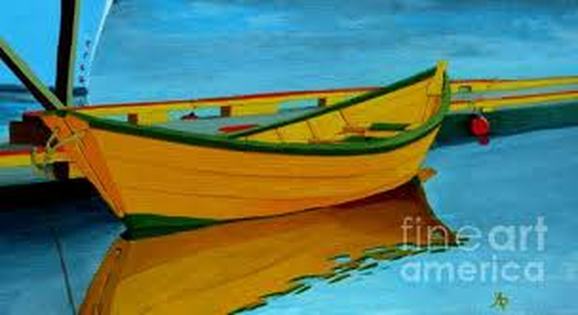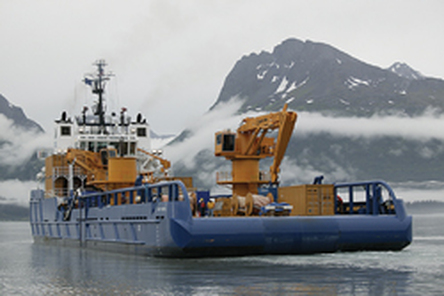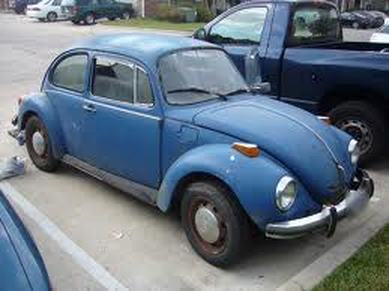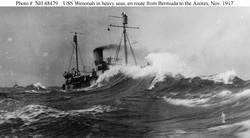A Trip Down The Mississippi, Fit 1 - Choosing The Boat
I've written a little about my first "ocean voyage" - aboard a Volkswagen, at Daytona Beach, Florida (to find that post, click "Seagoing Automobiles" in the Categories list on the right side of the page). But of course my friends and I, growing up in the American Midwest, had spent lots of time on fresh water growing up. We camped & fished, swam in creeks and lakes, paddled rowboats and canoes; and I had an uncle who built boats up on the Great Lakes at Benton Harbor, Michigan, where my grandparents also lived. One early memory is a trip on Lake Michigan in my uncle's boat, when weather got so rough that he strapped me into a seat with his belt to stop me bouncing around the cabin like a pea in a rattle - I was a pretty small kid at the time. So even while showing abysmal ignorance of tides at Daytona, we weren't entirely inexperienced afloat. By choice, I've been around boats and water most of my life.
My best friend John and I were shipmates working for Getty on their domestic fleet - I was an AB and John had just become Third Assistant Engineer - when we decided it would be fun to go down the Mississippi River. If you've ever read Huckleberry Finn, you'll know the attraction. As an adventure it sounds both epic and ad hoc, and yet at the same time involves a pleasurable amount of planning. We evolved a plan that was ambitious, complicated, and impractical. We played it out over the next couple of years - in Canada, Indiana, Louisiana, and points between - sort of ad-libbing as we went, and we never did bring it to a full conclusion. But the fun we had! Both of us look back on that journey as one of the most remarkable times of our lives.
In the beginning (Fit 1, with apologies to Lewis Carroll), we chose a boat.
We wanted a boat large enough to sleep in - we figured we'd be a month or more going down, and we didn't want to camp on shore each night. But a conventional motorboat or sailboat didn't seem to fill the bill at all. Too complex, too expensive to run, too ordinary! We needed self-sufficiency, but as little size as possible. It's a well known fact that the smaller the boat, the more fun fits in it.
I'd been reading some of Chesapeake Bay boatbuilder Tom Colvin's articles. After serving in China during WW2, Colvin had conceived an admiration for the Chinese junk and its rig, and had begun to experiment with junk rigs on Western hulls. Tom was famous in the Chesapeake Bay region for GAZELLE, a 42-foot junk-rigged boat that had no engine - the junk rig was so easy to handle that he got along fine without one. I'd also been reading a lot about dories - their rich history, seaworthiness, and wide range of uses - in John Gardner's Dory Book. And I thought: how about a junk rig on a dory? Ought to work. I'd never heard of a dory with a junk rig; it could be a first (although it turned out it wasn't - see: Annie Hill), it would be our own, and it should be fun. . . so that became our vehicle for the trip.
Nobody built dories in Indiana, where my parents lived at the time - their house (whether they knew it or not) was to be our staging area. We consulted National Fisherman. The best sources for dories, we found, were in Maine and Nova Scotia. After some correspondence, we settled on the W. Laurence Allen shop in Lunenburg, Nova Scotia. They were a fine old shop, their prices were reasonable, and they built a model made for outboard motor use (unlike Colvin, we figured on needing a motor, especially in the Mississippi). You could put a motor on other dories, but usually into a well built in the bottom, well forward of the stern; the W. Laurence Allen design, though, incorporated a well that was formed by an internal false stern, occupying the final few feet of the boat. The dory shape was kept, but the motor hid in the shaped stern, out of sight, in a good location to steer and propel the boat. Best of all for our purposes, this system kept the main part of the hull free for us and our gear. We planned to make a sort of convertible camper out of the dory, and needed room to swing hammocks and so on.
You can't tackle anything new without having your horizons expanded in remarkable ways. For John and me, that started with acquiring the dory.
We made a couple of trips to Canada. On the first one we stayed in Lunenburg for several days with W. Laurence Allen's master boatbuilder, Freeman Rhuland. Freeman and his sweet wife ran a B&B in their home; it was off-season (does Lunenburg have a season?) so no one was there but us. It was like staying with your grandparents when you were a kid. Every morning we got up with Freeman and had a good Canadian breakfast, then went down to the boat shop with him. It was maybe a 10-minute walk, but it took him about 20 to make it 'cause he'd stop to talk to everyone he knew, and he seemed to know everyone. After ambling through the shop door, he'd set us some simple job or other, just to keep us busy.
We spent a lot of time watching Freeman instead of working, though. He'd tackle some tricky piece of work so quickly and efficiently, it looked like magic. I remember him fitting a replacement plank on a dory that had been smashed somehow. After getting out the broken plank, he took a new one and began to shape it by eye, hacking away with a hatchet that was so sharp that it would have shamed a laser. He'd hack a bit, the wood coming off like butter - stick the result up into the place where the old plank had been - hack some more, moving very fast and carrying on a conversation the while. In addition to shaping the plank's curve, he was simultaneously putting in the bevel to make it fit against the one above it. In a few minutes, he had a perfect replacement; he slipped it into place and secured it. Piece of cake. And he'd never stopped telling us stories and kidding us about being American - didn't even refer to what he was doing.
We'd accompany Freeman home for lunch, then return to finish the day at the shop. In the evening we'd have supper with the Rhulands, hearing about Lunenburg history, the local fishing industry, dories. . . storms that dorymen had survived, and storms they hadn't. And then - just like at Grandma's - we'd help with the cleaning up while the talk went on.
Freeman had another sideline, which was making model dories constructed with planks & frames, just like full-sized ones, complete with fishing gear in accurate detail. I remember the beautifully made oars, hurdy-gurdy, the tub & line - everything was there but a couple of little men and a swell to ride. He'd have sold us a model very reasonably, and I forget why we didn't buy one - guess we figured we had the real thing a-building at his shop. Wish we had it now!
At any rate, we couldn't get our dory that trip within our time window; the shop was swamped with other work. So we went on to Halifax for a couple of days, to see the sights, then back south to find Briar Island, Nova Scotia - Joshua Slocum's home island at the entrance to the Bay of Fundy. We stood on the shore and watched the fishing boats return, running full ahead against the tide but making only about a foot per second over the ground - going nowhere, but throwing a big wake! There was no accomodation there, so we couldn't spend the night. We wanted to - it was wildly beautiful and the people were great. I guess Slocum didn't stay long, either - life still looked spare in that place!
After that, we jogged by Quebec, but only stayed a day and a night - the Quebec soveriegnty movement was in full swing, and all we spoke was English. We were in a bar with very loud disco music, and asked two girls to dance, using gestures. Then we bought them drinks, all in dumb-show - you couldn't hear yourself speak. I'll always remember the looks on their faces when the music finally stopped for a moment, and they heard us speaking English!
I returned to Lunenburg in the middle of winter to help finish and take delivery of our dory. The story of a spare, long-haired hippie, towing a big dory on a converted horse trailer frame that John and I had acquired for $100 and modified, through the Canadian winter to Indiana wasn't as interesting as it might sound; and in spite of misadventures (more fun than serious) with the ramshackle trailer and old car, I made it in one piece.
So, set up in my parents' back yard, our dory awaited Spring and our transforming touch! I'll cover those highs (and lows) next time - in Fit 2.




 RSS Feed
RSS Feed